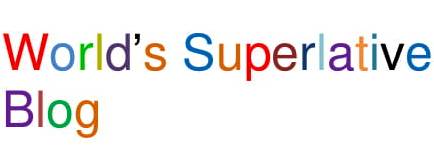Don’t Wait!
I kept in touch with only a few of my college buddies. But no matter where we were living, fifteen years after graduation I was still in regular contact with Jamie. One day when I was living in North Carolina and he was in Chicago, I got a letter from Jamie—this was before the days of email. He wrote that his mother had been diagnosed with colon cancer. By then I was a gastroenterologist. So my reply focused on technical questions related to the diagnosis: What was the cell type? What imaging had they done? How had it been staged? Though I don’t recall, my guess is that I said little in the way of condolence or support. Naturally, Jamie’s news resonated with my mother’s cancer death when I was fourteen years old–it was uncomfortable to face.
Several years after she underwent surgery and chemo all his mother’s tests were negative. We both breathed a sigh of relief. But later, about five years after her initial diagnosis, I got a letter from Jamie saying that his mother’s cancer had returned. Not long after that he wrote that she had died. Even though this was now decades after my mother’s death, it triggered very unsettling feelings, which I tried to shut down by not thinking about Jamie’s news. When I did consider replying I couldn’t figure out what to say that would be sensitive and helpful. Whatever I came up with seemed trite (“Dear Jamie, I was saddened to hear of your mother’s recent passing…”). So I kept putting off a response. And putting it off. Finally, after about six weeks of silence I sent him a tepid letter. But I felt intense shame for the long delay–as one of Jamie’s closest friends, as well as a physician whose own mother had died of cancer, I was in a special position to give him really meaningful support. And I hadn’t.
Jamie never responded. I presumed it was because he was justifiably angry that I’d taken so long to acknowledge his loss. And I was too humiliated to write again. So we lost touch. For the first time in many years I didn’t know where Jamie lived, or what he was doing. I really missed him.
This lack of communication went on for ten long years. During this time my wife and I had a child, I changed jobs, and we moved to London, and later to France. So much had happened; I longed to be in touch again. By then email had come into wide use. So one day I took a deep breath, and after a quick internet search tracked him down.
I sent a short note to his email address, expressing regret that we’d lost touch and said I’d like to resume communicating. He responded right away. It was a bit awkward at first, but soon we were friends again, and together mourned the missing decade. There was of course a lot of catching up to do. Now, years after our reconnection, we’re still uncovering things we didn’t know about each other during that time.
What I learned from this painful experience changed my life. I vowed never again to let anyone down the way I’d let Jamie down. So now when I receive a message of loss or any other kind of distress–which is happening more and more as I get older–I endeavor to reply promptly. Even if my sentiment isn’t perfect, I know that the person who reached out to me will appreciate that someone is thinking of them and, however awkwardly, recognizing their pain.
If I’m in the middle of something else, or need time to gather my thoughts, I still try to answer quickly and say something like, “So sorry to hear your news! I’m thinking of you and will get back to you soon.” And then I do. That very few people acknowledged my loss after my mother’s death led me to feel isolated and ignored. And I’m sure that Jamie felt the same way when I, one of his best friends, didn’t get back to him. It’s now clear to me that simply making a timely connection and expressing concern is much more important than crafting perfect sentences.
Lately I’ve generalized this philosophy: I now try to rapidly get back to everyone who contacts me, even if there’s no particular pain or trauma motivating their communication. Putting off answering means that the email is apt to get buried in my inbox and forgotten. I believe that people who have taken the time to contact me are on some level wanting to connect. It’s heartwarming to see how meaningful a quick reply can be to the recipient—I think it helps people feel valued.
By promptly responding to people who reach out to me, especially those who are in distress, I’m honoring Jamie, honoring my mother’s memory, and perhaps especially honoring my 14-year-old lonely self. It’s a good feeling all the way around.
Note: Some unimportant details were changed to preserve Jamie’s privacy.

